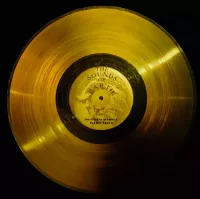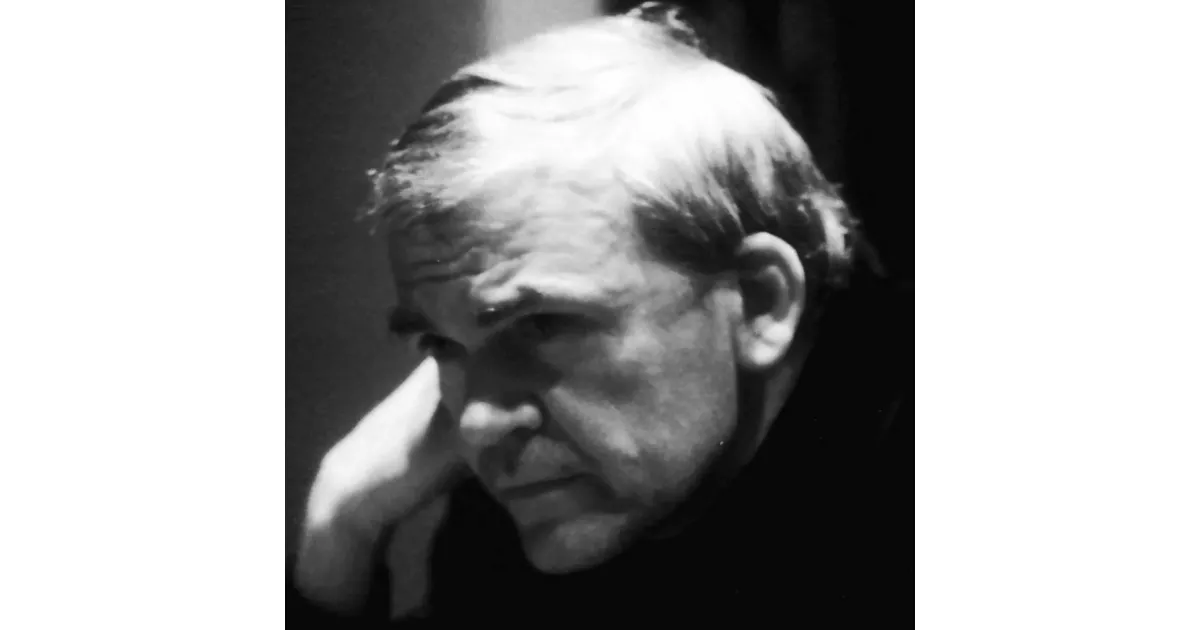Milan Kundera, a Czech and French novelist, is known for his philosophical novels exploring themes of exile, identity, and the human condition. Exiled to France in 1975 and acquiring citizenship in 1981, his works often delve into the complexities of totalitarian regimes and their impact on individual lives. His notable works include 'The Unbearable Lightness of Being' and 'The Book of Laughter and Forgetting', which grapple with memory, history, and the search for meaning in a world marked by political and existential uncertainties. Kundera's writing blends narrative storytelling with philosophical reflection, making him a significant figure in contemporary literature.
April 1929: Milan Kundera's birth
In April 1929, Milan Kundera was born.
April 1929: Birth of Milan Kundera
On April 1929, Milan Kundera was born in Brno, Czechoslovakia to Ludvík Kundera, a musicologist and pianist, and Milada Kunderová, an educator.
1929: Referenced birth date in denunciation investigation
In October 2008, the article investigating the alleged denunciation included that Milan Kundera, born in 1929, was the informant.
1935: Věra Hrabánková Born
In 1935, Kundera's second wife Věra Hrabánková was born.
1937: Olga Haasová-Smrčková Born
In 1937, Kundera's first wife Olga Haasová-Smrčková was born.
1945: Translation of Vladimir Majakovsky's Works
In 1945, the journal Gong published Milan Kundera's translation of some of the works from the Russian poet Vladimir Majakovsky.
1947: Joined the Communist Party
In 1947, at the age of eighteen, Milan Kundera joined the Communist Party of Czechoslovakia.
1948: Father becomes head of Janáček Music Academy
In 1948, Milan Kundera's father, Ludvík Kundera, became the head of the Janáček Music Academy in Brno.
1950: StB Incident
In 1950, Milan Kundera may have reported the existence of a suitcase in the hallway.
1950: Alleged Denunciation
In 1950, Milan Kundera was alleged to have denounced Miroslav Dvořáček to the StB.
1950: Expulsion from the Communist Party
In 1950, Milan Kundera was expelled from the Communist Party.
1952: Appointed lecturer in world literature
In 1952, after graduating, Milan Kundera was appointed as a lecturer in world literature at the Film Faculty.
1953: Publication of Man: A Wide Garden
In 1953, Milan Kundera published "Man: A Wide Garden".
1955: Publication of The Last May
In 1955, Milan Kundera published "The Last May", a long epic poem dedicated to Julius Fucik.
1956: Married Olga Haasová-Smrčková
In 1956, Kundera married his first wife, Olga Haasová-Smrčková.
1956: Marriage to Olga Haas
In 1956, Milan Kundera married operetta singer Olga Haas.
1956: Readmission to the Communist Party
In 1956, Milan Kundera was readmitted to the Communist Party.
1957: Publication of Monologue
In 1957, Milan Kundera released the collection of lyrical poetry, "Monologue".
1961: Father steps down as head of Janáček Music Academy
In 1961, Milan Kundera's father, Ludvík Kundera, stepped down as the head of the Janáček Music Academy in Brno.
1962: Publication of The Owners of the Keys
In 1962, Milan Kundera wrote the play "The Owners of the Keys", which became an international success.
June 1967: Speech at the Fourth Congress of the Czech Writers Union
In June 1967, Milan Kundera delivered an impressive speech at the Fourth Congress of the Czech Writers union, focusing on maintaining Czech cultural independence.
1967: Married Věra Hrabánková
In 1967, Kundera married Věra Hrabánková.
1967: Publication of The Joke
In 1967, Milan Kundera published his first novel, "The Joke," satirizing the totalitarianism of the Communist era.
August 1968: Book banned after Soviet occupation
Following the Soviet occupation of Czechoslovakia in August 1968, Milan Kundera's book "The Joke" was banned.
August 1968: Warsaw Pact invasion of Czechoslovakia
In August 1968, the Warsaw Pact invasion of Czechoslovakia crushed the Prague Spring, impacting Milan Kundera's reformist activities.
1968: Loss of job at the Film Faculty
Following the Warsaw Pact invasion of Czechoslovakia in 1968, Milan Kundera lost his job at the Film Faculty.
1968: Referenced Prague Spring
In 2000, Milan Kundera's novel "Ignorance" references the Prague Spring of 1968.
1970: Second Expulsion from the Communist Party
In 1970, Milan Kundera was expelled from the Communist Party for a second time.
1971: Death of Ludvík Kundera
In 1971, Milan Kundera's father, Ludvík Kundera, passed away.
1973: Life Is Elsewhere Receives Prix Médicis
In 1973, Life Is Elsewhere received the French Prix Médicis.
1973: Publication of La vie est ailleurs in French
In 1973, Milan Kundera's second novel was first published in French as "La vie est ailleurs."
1975: Death of Milada Kunderová
In 1975, Milan Kundera's mother, Milada Kunderová, passed away.
1979: Kundera Awarded Mondello Prize
In 1979, Kundera was awarded the Mondello Prize for The Farewell Party.
1979: Stripped of Czechoslovak Citizenship
In 1979, Kundera was stripped of his Czechoslovak citizenship.
1979: Publication of The Book of Laughter and Forgetting
In 1979, Milan Kundera published "The Book of Laughter and Forgetting", which explored Czech opposition to the Communist regime.
1979: Czechoslovak Citizenship Revoked
In 1979, Milan Kundera's Czechoslovak citizenship was revoked.
1979: Publication of Život je jinde in Czech
In 1979, Milan Kundera's second novel was published in Czech as "Život je jinde."
1981: Became a French Citizen
In 1981, Kundera became a French citizen.
1983: Asteroid Named in His Honour
In 1983, the asteroid 7390 Kundera was named in his honour.
1984: Recollection of Communist Captivation
In 1984, Milan Kundera recalled that "Communism captivated me as much as Stravinsky, Picasso and Surrealism."
1984: Publication of The Unbearable Lightness of Being
In 1984, Milan Kundera's most famous work, "The Unbearable Lightness of Being", was published.
1985: Transition to French Language
From 1985 onwards, Milan Kundera made a conscious transition from Czech towards the French language for his writings.
1985: Kundera Receives Jerusalem Prize
In 1985, Kundera received the Jerusalem Prize.
1985: Awarded the Jerusalem Prize
In 1985, Milan Kundera was awarded the Jerusalem Prize.
1985: Czech Expatriate Translation in Canada
In 1985, a Czech expatriate in Canada translated "The Unbearable Lightness of Being" into Czech.
1987: Revision of French Translations
Between 1985 and 1987, Milan Kundera undertook the revision of the French translations of his earlier works himself.
1987: Wins Austrian State Prize for European Literature
In 1987, Kundera won The Austrian State Prize for European Literature.
1988: Film Adaptation of The Unbearable Lightness of Being
In 1988, a film adaptation of Milan Kundera's "The Unbearable Lightness of Being" was released, which Kundera disliked.
1989: Ban on books lifted after Velvet Revolution
In 1989, after the Velvet Revolution, the Communist Party of Czechoslovakia lifted the ban on Milan Kundera's books.
1995: Publication of Slowness
In 1995, Milan Kundera's first work in French, "Slowness," was published.
2000: Publication of Ignorance
In 2000, Milan Kundera published "Ignorance", a novel focusing on the romance of Czech émigrés.
2000: Awarded the Herder Prize
In 2000, Milan Kundera was awarded the Herder Prize.
2000: Awarded the International Herder Prize
In 2000, he was awarded the international Herder Prize.
2002: English Translation of Ignorance
In 2002, Linda Asher translated the original French version of Milan Kundera's novel "Ignorance" to English.
2006: Official Czech Translation
In 2006, an official translation of "The Unbearable Lightness of Being" became available in the Czech language.
2007: Awarded Czech State Literature Prize
In 2007, he was awarded the Czech State Literature Prize.
October 2008: Denial of Denunciation
In October 2008, Milan Kundera denied turning Dvořáček into the StB, stating he never knew him.
October 2008: Investigation into alleged denunciation
In October 2008, Respekt reported an investigation into whether Milan Kundera denounced Miroslav Dvořáček to the StB in 1950.
November 2008: International Writers Defend Kundera
In November 2008, eleven internationally recognized writers, including Nobel laureates, defended Kundera.
2009: Awarded the Prix mondial Cino Del Duca
In 2009, he was awarded the Prix mondial Cino Del Duca.
2010: Made Honorary Citizen of Brno
In 2010, Kundera was made an honorary citizen of his hometown, Brno.
2011: Receives the Ovid Prize
In 2011, Kundera received the Ovid Prize.
2014: Publication of the novel
In 2014, Milan Kundera published a novel focusing on male friends in Paris and their relationships, which received negative reviews.
2019: Granted Czech Citizenship
In 2019, Kundera was granted Czech citizenship.
2020: Awarded the Franz Kafka Prize
In 2020, he was awarded the Franz Kafka Prize, a Czech literary award.
2021: Awarded the Golden Order of Merit
In 2021, Milan Kundera received the Golden Order of Merit from the president of Slovenia, Borut Pahor.
2022: Olga Haasová-Smrčková's Death
In 2022, Kundera's first wife Olga Haasová-Smrčková passed away.
July 2023: Death of Milan Kundera
In July 2023, Milan Kundera died in Paris at the age of 94 after a prolonged illness.
July 2023: Milan Kundera's death
In July 2023, Milan Kundera passed away.
2024: Věra Hrabánková's Death
In 2024, Kundera's second wife Věra Hrabánková passed away.
Mentioned in this timeline
France officially the French Republic is primarily located in Western...

Music is a cultural universal involving the arrangement of sound...
Canada is a North American country the second largest in...

Books are a means of storing information as text or...

Asteroids are minor planets orbiting the inner Solar System or...
Trending

8 months ago Bissonnette's roast, Maple Leafs' exploitation, and Marchand's OT goal in Game 3.

7 months ago Pascal Siakam Shines in NBA Finals, Inspiring Africa and Sharing Lessons.
2 months ago Iran Faces Severe Drought, Tehran Water Cuts Planned, Evacuation Considered Amid Crisis

Ansel Elgort is an American actor and singer who started his acting career with a role in 'Carrie' He achieved...

9 months ago Tyson Predicts Davis Victory; Garcia Wants Rematch But Sees Obstacles Blocking the Fight

7 months ago Mastantuono: River Plate's Jewel, Gallardo's Thoughts on Real Madrid Transfer
Popular
Curt Cignetti is an American college football coach currently the...

Carson Beck is an American college football quarterback currently playing...

XXXTentacion born Jahseh Dwayne Ricardo Onfroy was a controversial yet...
WWE Raw a professional wrestling television program by WWE airs...

William Franklin Graham III commonly known as Franklin Graham is...
Matt and Ross Duffer known as the Duffer Brothers are...
